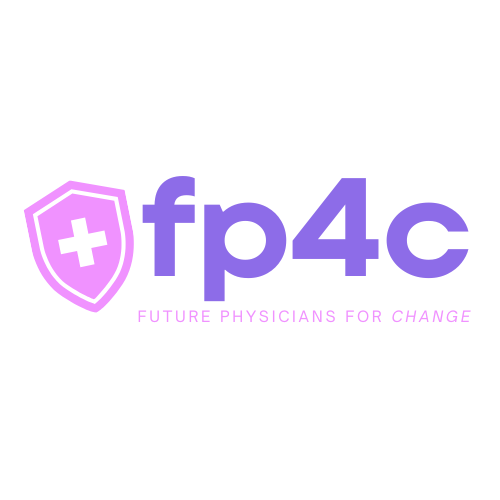The Poster Session is where you can showcase your passion for advancing the art and science of medicine in specific areas that matter to you. We welcome completed projects or research in progress! AMSA’s National Leaders are on standby for guidance and collaboration as you architect your abstract and presentation. During #FP4Change, you present to (and network with) a panel of VIP judges — and winners are selected for 11 prizes across 9 different categories. (Hello cash prizes! National notoriety! Portfolio boosters!)
Poster Session – 2025
Poster Session | 30th Annual
The Main Gist
Some juicy FAQs
Who can submit?
Medical students and premedical students can submit abstracts during the submission process.
In order to be eligible to present a poster at Future Physicians for Change, at least one author must be registered and attend in person to present.
For projects that are complete, you must be able to include data and results, and conclusions. Because negative findings are under-reported in research, we encourage you to submit abstracts for projects which have yielded negative findings.
For projects that are in process (not complete), you must be able to present a coherent and compelling vision, strategic priorities, and intended outcomes. Please note that “coherent and compelling” does not necessarily mean “fully fleshed out.” We invite you to submit abstracts for projects which might become more fully formed through the feedback from professional colleagues and peers.
If accepted, posters may be presented in teams or individually by one of the authors. All individuals who present must be registered for Future Physicians for Change.
The submission portal for poster abstracts will open September 16, 2024, and abstracts will be considered in three regular rounds, and one late submission round while space is available.
- Round 1: Abstracts received between September 16, 2024, and December 15, 2024
- Round 2: Abstracts received between December 16, 2024, and January 15, 2025
- Round 3: Abstracts received between January 16 and February 15
- Late submissions will be considered if received between February 16 and March 15, 2025, if space remains available. (See other important details about late submissions below.)
Poster submissions can be complete or incomplete at time or submission.
Notification: All submissions will be reviewed and individuals will be notified if they are selected to be included in this year’s session by January 30 for the second round of submissions and by February 28 for the third round.
Discount: Poster Session presenters who submitted during Round 1, Round 2 or Round 3 receive a discounted registration. If your abstract is accepted, you will be offered a discount for registration. You must register at least one author as a presenter for the poster by February 16.
Late submission period: For late submissions (received between February 16 and March 15), you must register for the event before submitting your abstract for consideration.
AMSA’s 30th Annual Poster Session will be held in person during #FP4Change in April.
No, we welcome posters reflecting not only completed projects, but also projects at any stage of the design and implementation process. AMSA values the process and effort towards research, and acknowledges the value in this learning experience.
For projects that are complete, you must be able to include data and results, and conclusions. Because negative findings are under-reported in research, we encourage you to submit abstracts for projects which have yielded negative findings. For projects that are in process (not complete), you must be able to present a coherent and compelling vision, strategic priorities, and intended outcomes. Please note that “coherent and compelling” does not necessarily mean “fully fleshed out.” We invite you to submit abstracts for projects which might become more fully formed through the feedback from professional colleagues and peers.
Only one abstract may be submitted per author.
Abstracts should be no longer than 350 – 400 words and follow a standard format:
- Background/Vision
- Methods/Process/Action
- Results/Impact
- Conclusions/Connections/Meanings
Ethical considerations for subjects should be mentioned, if applicable.
No charts, graphs, special characters, or formatting will be possible using the online abstract submission form. You must write your abstract in text paragraphs to avoid formatting errors online. Email submissions will not be accepted or reviewed.
For those submitting Chapter Activities posters, please submit a 350 – 400 word abstract explaining the overall endeavors and successes of your chapter. For those submitting a case report, please submit a 350-400 word abstract explaining a case introduction, patient presentation and disease course, intervention and management, and outcome and discussion. Case reports will be considered on a limited basis according to the rarity or unusual nature of the case.
Individual posters must be no larger than 40 inches (102 cm) x 40 inches (102 cm). We strongly suggest a poster size of 30 inches (77 cm) x 40 inches (102 cm).
Reviews of abstracts for acceptance are overseen by an AMSA fellow and selection committee as appropriate. These abstracts are not being considered for publication, only for presentation at AMSA’s Convention and Exposition. Acceptances are issued on a rolling basis, but are competitive due to limited availability of presentation space. For questions, contact events@amsa.org. Each category of submission will have an overall winner, and the poster session will also have an overall winner. Award winners will receive a certificate and cash prize.
All poster session participants are expected to make their own arrangements to bring or upload their posters. Unfortunately, the AMSA National Office will not be accepting any poster shipments.
Prior to the poster session at convention, accepted abstracts will be reviewed by a panel of judges and ranked in their respective project category. Projects will then be further evaluated by judges during the convention. Due to the number of posters exhibited, not every author will be able to present to a judge; however, all will be evaluated on site by the members of the judging panel.
- Individuals can only be the presenting author for one project – so no one person can submit two abstracts.
- There is no limit to how many co-authors can be listed for an abstract, but at least one of them needs to be present at the poster session and only one can be listed as the “presenting author.” (It’s simplest if this is the person who submits the abstract.)
- If a poster session winner is announced with multiple co-authors who are present at the conference, only the presenting author who submitted the abstract will called to the stage and given any prize money (which that author may split among other authors as they see fit).
- All co-authors will be published in the 2024 poster session booklet if they submit PDFs of their final posters and abstracts during the conference, and all winning posters with all co-authors will be listed in publication of The New Physician pending submission of their final posters and abstracts during the conference.
Advocacy, Grassroots, and Policy projects
These projects put our vision for social change and AMSA values into action by showcasing how medical trainees engage elected officials and decision makers. No matter the specific issue, showcase your work in your community organizing for the change you want to see become reality in the future of healthcare.
Community development and service projects
These projects deal with experiences related to educating and contributing to the local patient community by improving access to resources and increasing the quality of the life.
Curriculum development and educational projects
These projects focus on the development of education interventions, curricular innovations, and novel applications of technology to the learning process in medical education.
Patient-oriented and epidemiology projects
These projects focus on clinical patient-oriented and population-based research. Case reports and studies are accepted on a limited basis.
Basic and translational science projects
These projects include research focused on natural sciences and laboratory bench-top research, as well as how basic science innovation seeks to improve human health and well-being.
Reproductive Justice and Abortion-related projects
These projects focus on issues related to abortion care (including access, coverage, or direct provision), reproductive health research, sexual/reproductive health (SRH) education and training experiences, Reproductive Justice advocacy, etc. and must have a U.S. focus or context.
International Impact
The International Impact poster session category welcomes submissions from pre-medical students and medical students worldwide, focusing on initiatives and projects with global impact. These presentations will spotlight the global influence and contributions, whether through innovative curriculum designs, cross-border research collaborations, or efforts to address international healthcare challenges. The session will provide a platform for sharing how individuals who are pre-medical students or attending domestic or international medical schools are making a profound difference in healthcare on a global scale.
AMSA Academy Scholars Programs and Institutes participant projects
The abstracts for these projects should be submitted in the appropriate categories listed above. In the abstract submission form, you’ll be able to indicate which of the Scholars Programs or Institutes you participated in. Projects associated with a Scholars Program or Institute will be designated as such in the Abstract Program.
Chapter activities
Share what your chapter has been doing, the motivation for initiatives, and the accomplishments you’ve enjoyed. This is a great way to promote your chapter and connect with like-minded influencers and other chapters across the country and globe.
Global Autoimmune Institute
Explore the complexities of autoimmune diseases and the pervasive issue of misdiagnosis within the context of physiological and psychological symptoms in “Addressing Autoimmune Disease Misdiagnosis: Unveiling the Intersection of Physiological and Psychological Symptoms.” Investigate the impact of medical siloing on accurate diagnosis and its implications for underserved communities in “Breaking Down Medical Silos: Enhancing Autoimmune Disease Diagnosis.” Delve into disparities in access to nutritious food and propose solutions to improve nutritional support in “Nutrition and Autoimmune Disease: Addressing Disparities in Access and Care.” All poster presenters in this category are encouraged to choose topics within these themes to contribute to the conversation on equitable care and reducing healthcare disparities for individuals with autoimmune diseases.

